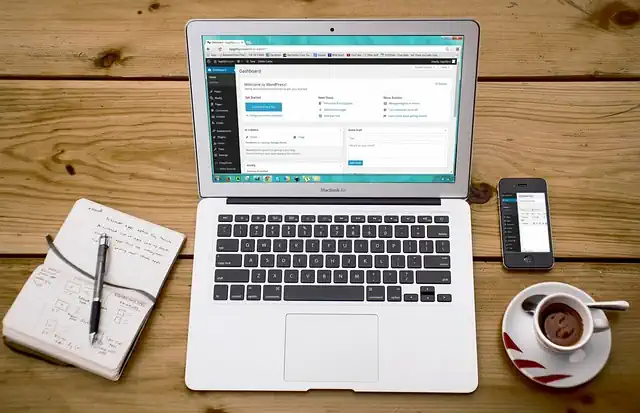How Much I Save Money
Introduction

As an AI language model, I do not have personal experiences or financial goals. However, I can provide information on how to save money and the benefits of doing so. Saving money is an important aspect of financial planning and can help individuals achieve their long-term financial goals. It involves setting aside a portion of income or reducing expenses to build a financial cushion for emergencies, retirement, or other financial objectives. The amount of money one can save depends on their income, expenses, and financial priorities.
10 Simple Ways to Cut Expenses and Save Money
As someone who has always been conscious of my spending habits, I have found that there are many simple ways to cut expenses and save money. Over the years, I have developed a few strategies that have helped me to save money without sacrificing the things that are important to me.
One of the most effective ways to save money is to create a budget and stick to it. This may seem like a daunting task, but it is actually quite simple. Start by tracking your expenses for a month or two, and then use that information to create a budget that reflects your spending habits. Be sure to include all of your monthly bills, as well as any discretionary spending that you do.
Another way to save money is to cut back on your discretionary spending. This can be as simple as bringing your lunch to work instead of eating out, or as drastic as canceling your cable subscription. Look for areas where you can cut back without sacrificing too much, and then redirect that money towards your savings goals.
One of my favorite ways to save money is to take advantage of sales and discounts. Whether it’s a buy-one-get-one-free deal at the grocery store or a coupon for a restaurant, these small savings can add up over time. I also like to shop at discount stores and thrift shops, where I can find great deals on clothing and household items.
Another way to save money is to be mindful of your energy usage. This can include turning off lights and electronics when you’re not using them, using energy-efficient appliances, and adjusting your thermostat to save on heating and cooling costs. These small changes can make a big difference in your monthly utility bills.
If you’re looking to save money on transportation, consider carpooling or taking public transportation instead of driving alone. You can also save money on gas by driving more efficiently, such as avoiding idling and accelerating slowly. If you’re in the market for a new car, consider a fuel-efficient model that will save you money on gas in the long run.
Another way to save money is to be mindful of your food spending. This can include meal planning, buying in bulk, and cooking at home instead of eating out. By planning your meals ahead of time and buying in bulk, you can save money on groceries and reduce food waste. Cooking at home is also a great way to save money and eat healthier.
If you’re looking to save money on entertainment, consider free or low-cost activities such as hiking, visiting museums, or attending community events. You can also save money on movie tickets and other entertainment by using discount websites and apps.
Finally, consider ways to save money on your housing expenses. This can include downsizing to a smaller home or apartment, refinancing your mortgage, or negotiating with your landlord for a lower rent. By reducing your housing expenses, you can free up more money to put towards your savings goals.
In conclusion, there are many simple ways to cut expenses and save money. By creating a budget, cutting back on discretionary spending, taking advantage of sales and discounts, being mindful of your energy and food spending, and finding ways to save on transportation and housing expenses, you can make significant progress towards your savings goals. Remember, every little bit counts, and even small changes can add up to big savings over time.
The Benefits of Creating a Budget and Sticking to It
As a young adult, I never really thought about saving money. I was always living paycheck to paycheck, spending my money on things that I didn’t really need. It wasn’t until I started working full-time and paying my own bills that I realized the importance of creating a budget and sticking to it.
Creating a budget can seem overwhelming at first, but it’s actually quite simple. The first step is to determine your monthly income. This includes your salary, any bonuses or commissions, and any other sources of income. Once you have your total monthly income, you can start to allocate your money to different categories.
The most important category to allocate money to is your savings. It’s recommended that you save at least 20% of your income each month. This may seem like a lot, but it’s important to have a safety net in case of emergencies or unexpected expenses. You can also allocate money to other categories such as rent/mortgage, utilities, groceries, entertainment, and transportation.
Sticking to your budget can be challenging, especially if you’re used to spending money freely. However, there are a few tips that can help you stay on track. First, track your spending. This means keeping track of every penny you spend, whether it’s on a cup of coffee or a new pair of shoes. This will help you identify areas where you may be overspending and where you can cut back.
Another tip is to set goals for yourself. Maybe you want to save up for a down payment on a house or take a vacation. Having a specific goal in mind can help motivate you to stick to your budget and save money.
One of the biggest benefits of creating a budget and sticking to it is the financial freedom it provides. When you have a budget in place, you know exactly how much money you have to spend each month. This can help reduce stress and anxiety around money, as you’re not constantly worrying about whether or not you can afford something.
Another benefit is the ability to save for the future. Whether you’re saving for a down payment on a house, a child’s education, or retirement, having a budget in place can help you reach your savings goals faster. It also allows you to plan for unexpected expenses, such as car repairs or medical bills.
Creating a budget and sticking to it can also help you develop better spending habits. When you’re forced to think about every purchase you make, you become more mindful of your spending. You may start to question whether or not you really need that new pair of shoes or if you can make do with what you already have.
In conclusion, creating a budget and sticking to it can have a significant impact on your financial well-being. It may take some time to get used to, but the benefits are well worth the effort. By tracking your spending, setting goals, and developing better spending habits, you can achieve financial freedom and security. So, start creating your budget today and see how much you can save!
Maximizing Your Savings: Tips for Couponing and Discount Shopping
As someone who has always been conscious of my spending habits, I have always been interested in finding ways to save money. Over the years, I have tried various methods of couponing and discount shopping, and have found that these strategies can be incredibly effective in maximizing your savings.
One of the most important things to keep in mind when it comes to couponing is to be organized. This means keeping track of all of your coupons, and making sure that you are using them before they expire. I have found that using a coupon binder or folder can be incredibly helpful in keeping everything organized and easily accessible.
Another key strategy for maximizing your savings is to be strategic about when and where you shop. For example, many stores offer discounts on certain days of the week, or during specific times of the year. By taking advantage of these promotions, you can save a significant amount of money on your purchases.
In addition to traditional coupons, there are also a number of apps and websites that offer discounts and cashback on purchases. These can be a great way to save money on everything from groceries to clothing to travel. Some of my favorite apps for saving money include Ibotta, Rakuten, and Honey.
Of course, it is also important to be mindful of your spending habits in general. While couponing and discount shopping can be incredibly effective in saving money, it is still important to make sure that you are only buying things that you actually need. It can be easy to get caught up in the excitement of a good deal, but it is important to remember that every purchase you make is still money out of your pocket.
Overall, I have found that couponing and discount shopping can be incredibly effective in maximizing your savings. By being organized, strategic, and mindful of your spending habits, you can save a significant amount of money on your purchases. While it may take some time and effort to get started, the rewards are well worth it in the end.
Investing in Your Future: How to Save for Retirement
As a young adult, I never really thought about saving money for my future. I was more focused on enjoying the present and spending my hard-earned money on things that brought me joy. However, as I entered my mid-twenties, I started to realize the importance of saving for retirement.
I began by setting a goal for myself. I wanted to save at least 10% of my income each month. This may not seem like a lot, but it was a good starting point for me. I also made sure to create a budget for myself, so I could see where my money was going each month and where I could cut back on unnecessary expenses.
One of the first things I did was to open a retirement account. I chose a Roth IRA because it allowed me to contribute after-tax dollars, which meant that I wouldn’t have to pay taxes on my withdrawals in retirement. I also liked the fact that I could withdraw my contributions at any time without penalty, although I knew that it was best to leave the money in the account to grow over time.
I started by contributing a small amount each month, but as I saw my account balance grow, I became more motivated to save even more. I also took advantage of my employer’s 401(k) plan, which allowed me to contribute pre-tax dollars and receive a matching contribution from my employer.
Another way I saved money was by cutting back on unnecessary expenses. I canceled subscriptions to services I wasn’t using, like cable TV and gym memberships. I also started cooking more meals at home instead of eating out, which not only saved me money but also helped me eat healthier.
I also made sure to pay off my credit card balances in full each month to avoid paying interest charges. This was a big change for me, as I used to carry a balance on my credit cards and pay only the minimum payment each month. But I realized that by doing this, I was just throwing money away on interest charges.
As I continued to save money, I started to think about my long-term goals. I wanted to buy a house someday, so I started saving for a down payment. I also wanted to travel more, so I set aside money each month for a travel fund.
Overall, I’ve learned that saving money is a mindset. It’s not about depriving yourself of things you enjoy, but rather about being mindful of your spending and making smart choices with your money. By investing in my future now, I know that I’ll be able to enjoy a comfortable retirement and achieve my long-term goals.
The Psychology of Saving: Overcoming Impulse Buying and Instant Gratification
Saving money is a challenge that many people face. It is easy to get caught up in the moment and make impulsive purchases that can quickly drain your bank account. However, with a little bit of discipline and a change in mindset, it is possible to overcome the urge to spend and start saving for the future.
For me, the key to saving money has been to focus on my long-term goals. I have always been a planner, and I know that in order to achieve my dreams, I need to be financially stable. This means that I have to be mindful of my spending habits and make conscious decisions about where my money goes.
One of the biggest obstacles to saving money is the temptation to buy things on impulse. It is easy to get caught up in the excitement of a sale or a new product and make a purchase without really thinking it through. However, I have found that taking a step back and asking myself if I really need the item has helped me to avoid impulse buying.
Another challenge that I have faced is the desire for instant gratification. It can be difficult to resist the urge to buy something that will bring immediate pleasure, even if it is not something that I really need. However, I have learned that delaying gratification can be incredibly rewarding. By saving up for something that I really want, I am able to appreciate it more when I finally have it.
In order to overcome these challenges, I have developed a few strategies that have helped me to save money. First, I make a budget and stick to it. This means that I have a clear idea of how much money I have to spend each month and I allocate it accordingly. I also try to avoid using credit cards as much as possible, as this can lead to overspending and debt.
Another strategy that has worked well for me is to set savings goals. I have a specific amount of money that I want to save each month, and I make sure to put that money aside before I spend anything else. This helps me to prioritize my savings and ensures that I am making progress towards my long-term goals.
Finally, I have learned to be content with what I have. It can be easy to get caught up in the idea that we need more things in order to be happy, but I have found that this is not true. By focusing on the things that I already have and finding joy in the simple pleasures of life, I am able to resist the urge to spend money on things that I don’t really need.
In conclusion, saving money is a challenge that requires discipline and a change in mindset. By focusing on long-term goals, avoiding impulse buying, delaying gratification, making a budget, setting savings goals, and finding contentment in what we already have, we can overcome the urge to spend and start saving for the future. It takes time and effort, but the rewards are well worth it.
Conclusion
Conclusion: Saving money is an important aspect of financial planning. It allows individuals to have a safety net for emergencies, achieve financial goals, and have a sense of financial security. The amount of money one can save depends on their income, expenses, and financial goals. By creating a budget, reducing unnecessary expenses, and increasing income, individuals can save more money and improve their financial well-being.






